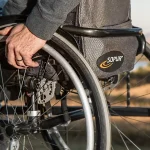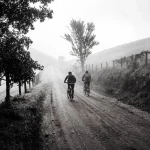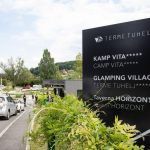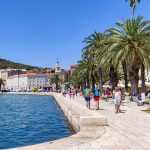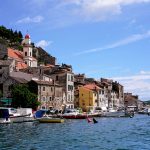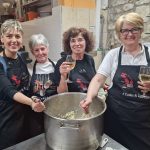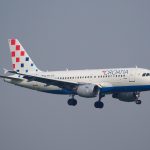November 18, 2019, the annual commemoration of the fall of Vukovar is a national event each year in Croatia. And in a small English pub in a field not far from Vukovar, the foreign veterans who served came together for a much lesser-known gathering. TCN was there. It was quite a night.
They came from all over the world – Sweden, Holland, Australia, the UK, France, Germany, Ireland, and Bolivia.
Total strangers, with just one thing in common – to volunteer to fight for the freedom of an independent Croatia.
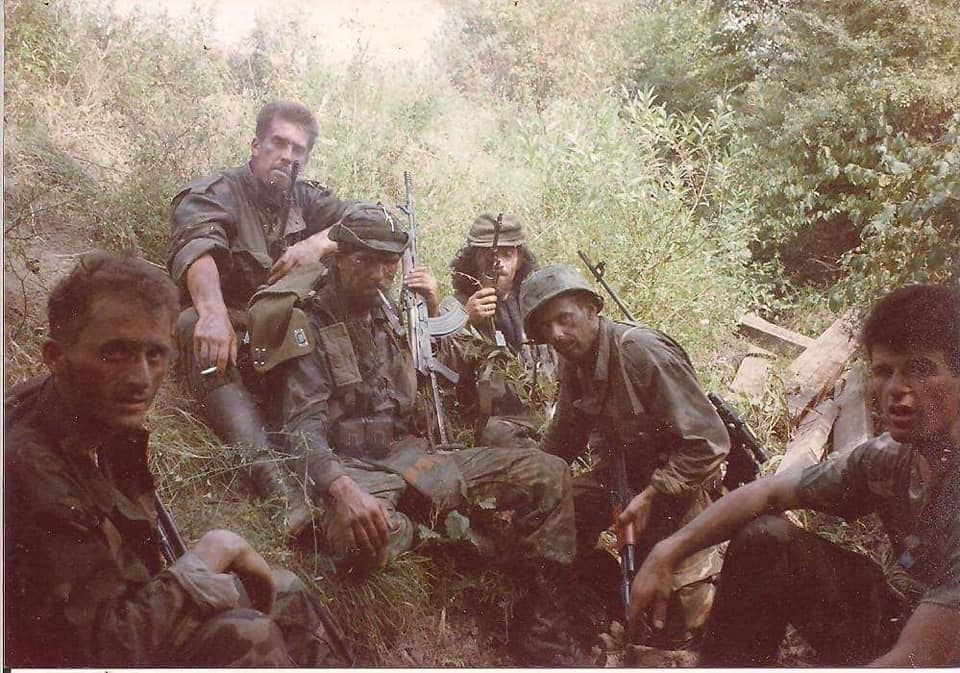
And last night, in an English pub in a field in the middle of nowhere in eastern Croatia, they gathered once again, some 28 years after first joining up to fight in the Homeland War.
The war changed them all emotionally, many physically. There were four eye patches covering missing eyes in four of the soldiers, and several of the others had difficulty walking due to the wounds inflicted during the conflict.
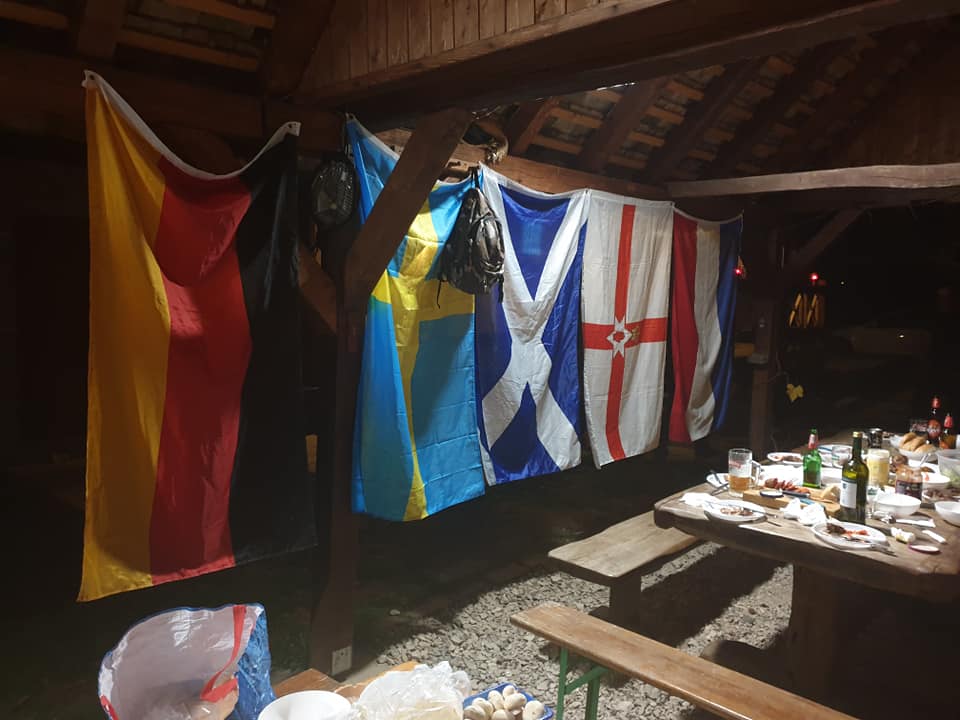
The foreign war veterans of Croatia’s War of Independence, together again on November 18, the day of national remembrance for the fall of Vukovar, the most emotionally charged day in the Croatian calendar. I, like they, had spent the best part of the day walking the 6km from the hospital town in the centre of Vukovar, past the iconic water tower to a service of remembrance at the large Vukovar Memorial Cemetery. And after the emotions of the occasion, we all arrived independently at the English pub, The White Boar, which lies in a field close to the train tracks on the edge of the village of Andrijasevci near Vinkovci.
People often ask me how I find so many unique stories in Croatia. With so many unique things to tell and nobody telling them, it is actually fairly easy. The only thing you need is a curious mind and the courage to ask questions to find out more. And so it was this time. A few weeks ago, on my first visit to Vinkovci, I noticed a rather bizarre sight – a red British telephone box. Upon asking, I learned that a man from Leeds called Steve had brought it a few years ago. This Steve was a local Vinkovci legend, having volunteered to fight for Croatia, been wounded, then stayed to build a life in Vinkovci with his local wife. That life, I learned, included opening an English pub in this empty field. Intrigued, I went to find the pub, only to find it closed. Steve was kind enough to agree to an email interview, and I really encourage you to read How I Came to Open an English Pub in a Field in Eastern Croatia.
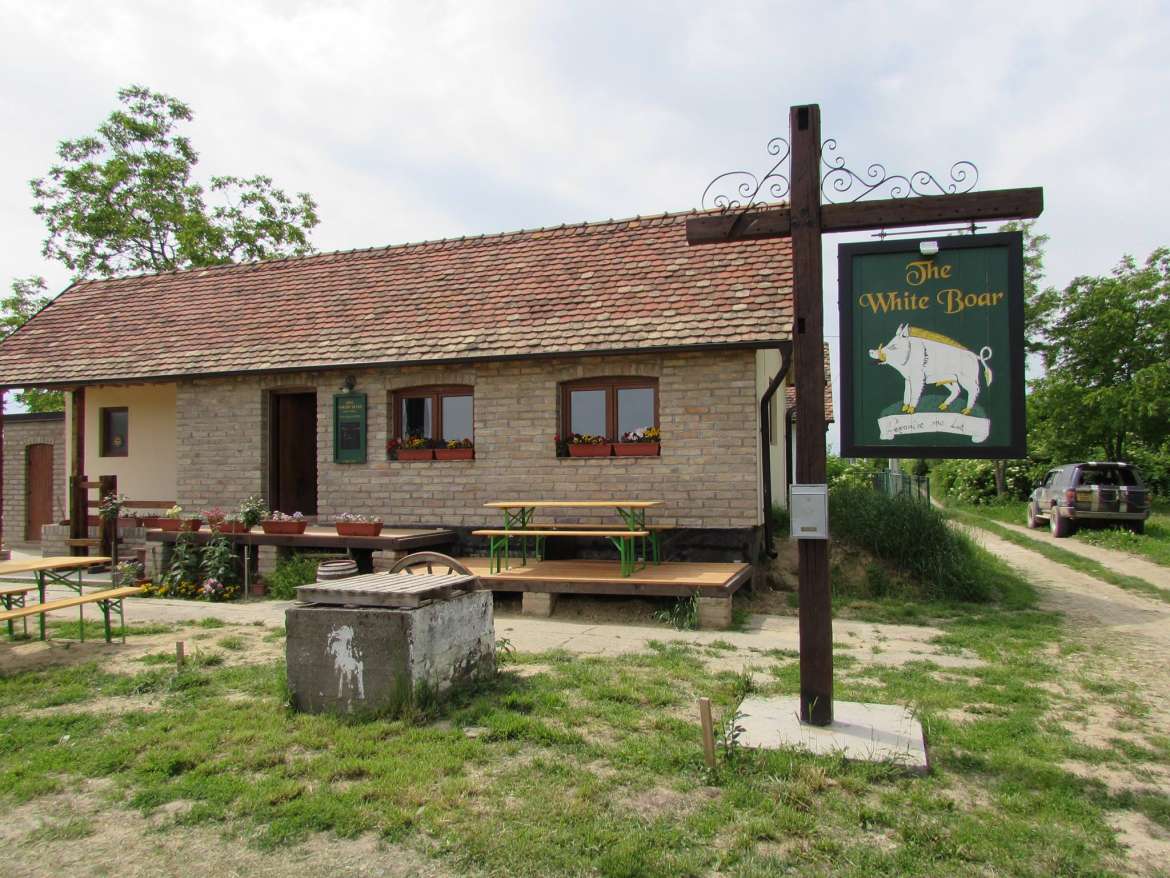
During the interview, Steve mentioned he only has draught beer for special occasions, such as November 18, when all the foreign vets come to party after the official programme in Vukovar.
Wait, what? All the foreign vets in an English pub in the middle of nowhere in eastern Croatia – now this was a story that had potential.
But I was an outsider. When I was an aid worker after the genocide in Rwanda in 1994, I was acutely aware that I could not understand everything as I had been an outsider. Similarly with life in Croatia, for I was not even here during the war. And as fascinating as it would be to hear the stories of these brave men who gave so much to Croatia, it was more than likely that they would resent the presence of an outsider at their private gathering, let alone want to talk to a journalist.
Nothing could have been further from the truth. I sounded Steve out about the possibility of me visiting, and he responded that it was a great idea, and the evening of the 18th was the absolutely best time to visit – to share in the happiness of reunion after the sadness of the day.
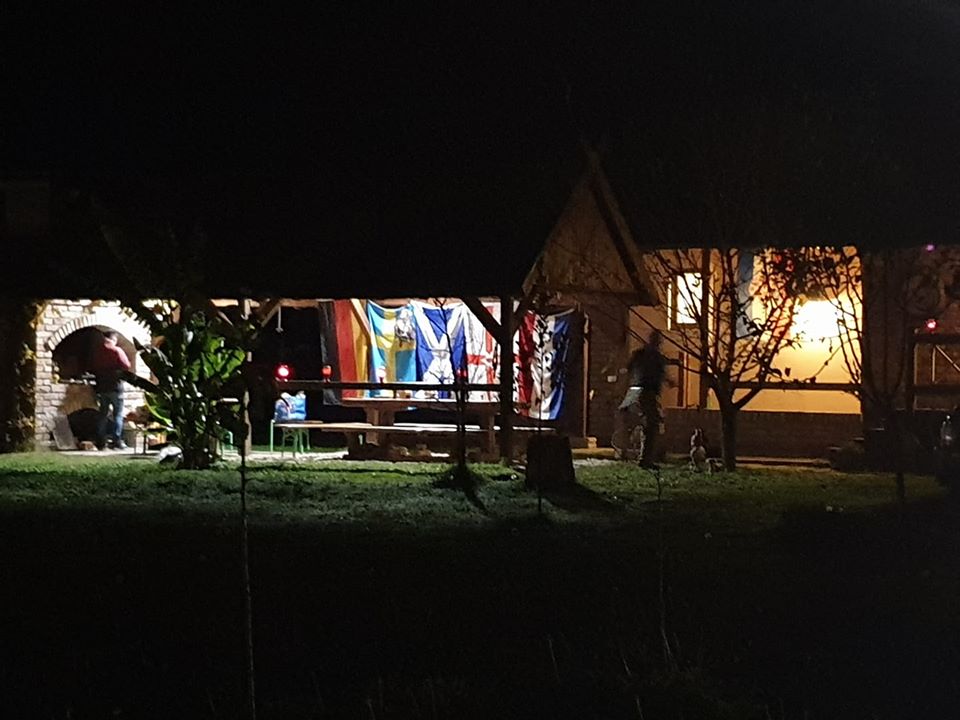
I went with a friend and was a little nervous as I approached, seeing all the flags and the vets in their battle fatigues, but two things put me immediately at rest. The first was the warm welcome from Steve and his family, who were grateful for the articles I had written about the pub.
And the second was a message of greetings I passed on to one British veteran called Rod from a friend of mine on Hvar, Vivian Grisogono, who had met Rod in the course of her work during the war. Rod was surprised that Vivian even remembered his name (and it clearly meant a lot that someone had remembered his service and suffering) and was very touched when I read him the part of the email in which she detailed that memory. He replied with memories of his own about my friend – how Vivian had pressed £10 into his hand once in London when he was short of money and insisted he keep it. He became quite emotional.
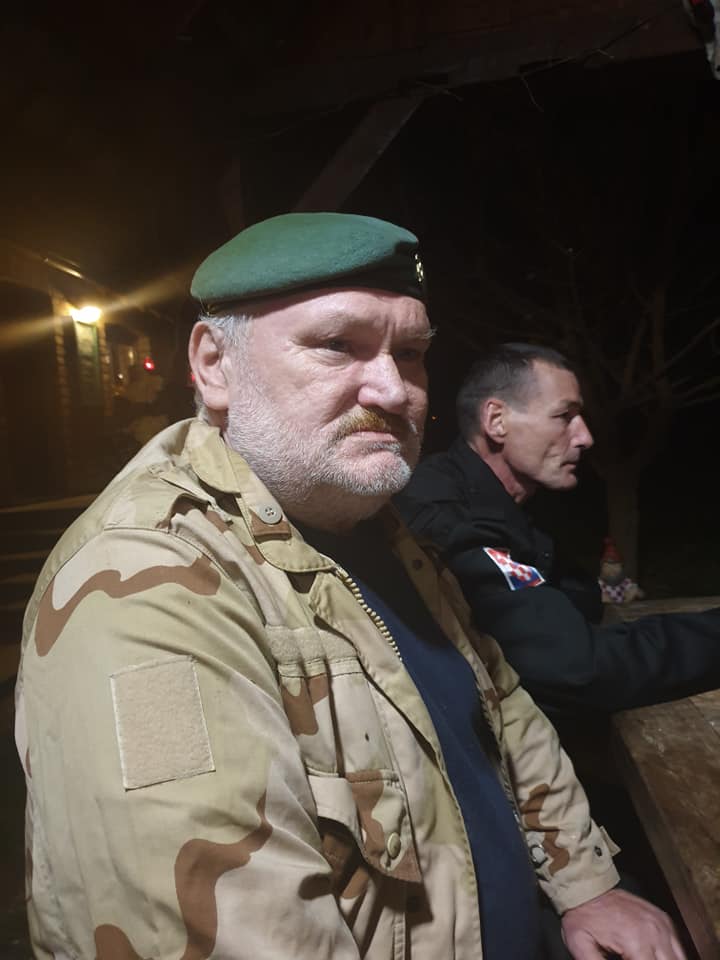
Out of respect, I had decided not to write anything about the event unless they were comfortable with that – I was gatecrashing a private party after all. But if they wanted to talk, I was there to relay their words – their memories, hopes, disappointments and reflections.
And so began a fascinating evening, but not one which ended last night in terms of reporting, for several of these foreign fighters are keen to be featured a little more, for despite their heroics, they feel that there is little recognition of the sacrifices they have made, or assistance with the ongoing battles some face, especially those living in Croatia.
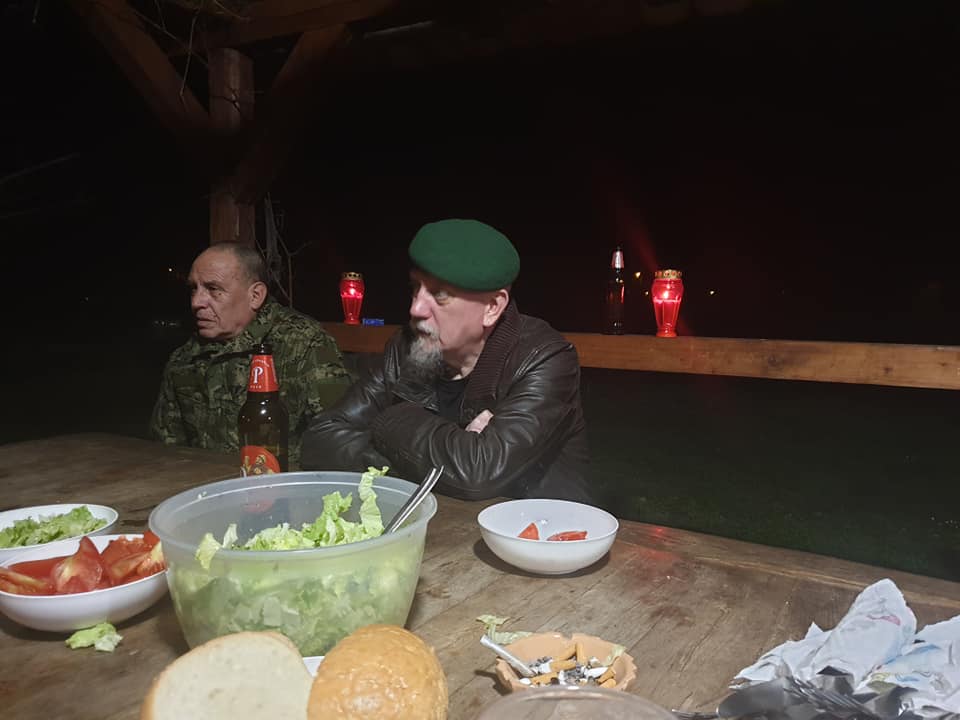
One heart-wrenching story came from one vet now living in a small town in continental Croatia. Wounded five times during the war, he can no longer walk unaided. He received an apartment and pension after the war back in 1999, and was classified as being 70% invalid. He has an illness which has been aggravated by his injuries, but rather than receiving more help, he is getting less. His invalid status has been reduced to first 60%, then 50%, and his pension now is 55% less than it once was, as the ministry looks to cut costs. This, he observed with some bitterness, when there are over half a million veterans in Croatia today, a number which increases year on year. The result of his reduced income, he says, is that he has barely enough to survive on, and 3-4 days a month, nothing to eat.
I had not realised that the percentage of disability affects things such as access. Another vet told me that he and this 50% invalid vet had got to the cemetery at 07:30 to get there before the crowds. He himself is an 80% invalid, but they were turned away in their car. Only 100% invalids were allowed through, so they had to turn their car, find some parking down a dirt path and add a painful additional 500 metres to their journey.
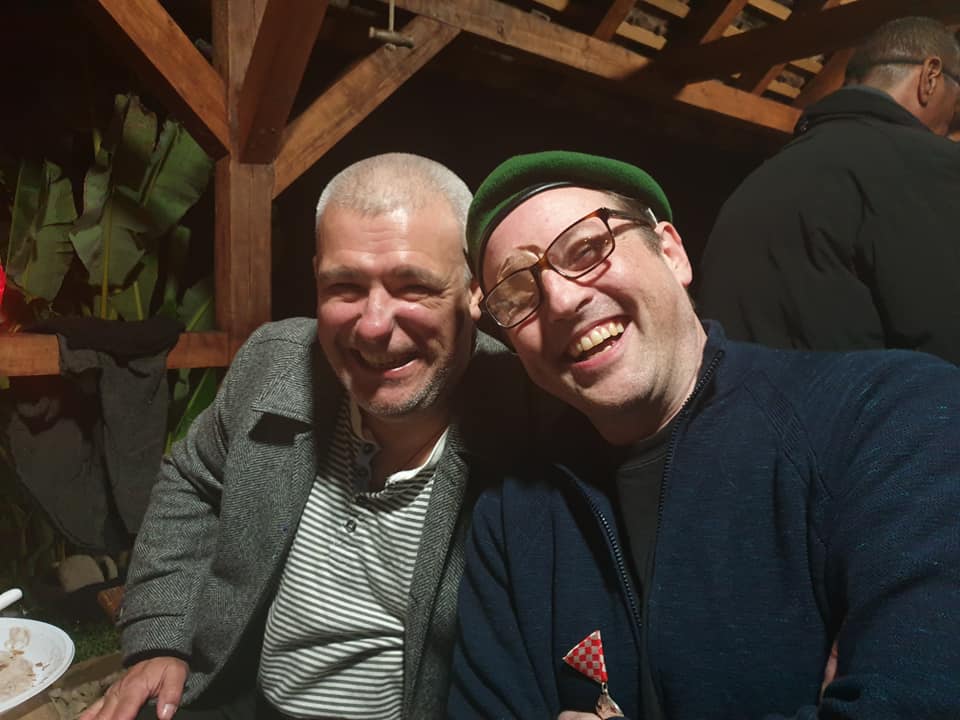
But there was also plenty of laughter, and I particularly enjoyed the dark humour that came from their war year experiences, as well as the fabulous stories of how they got involved in the first place. Were they all altruistic volunteers, or some mercenary, some spies? It was impossible for me to tell on such a short meeting, but what shone through from all of them was the pride in their sacrifice, their love of Croatia, and the honour and memories of those that stepped up when Croatia needed it most.
Small stories, seemingly inconsequential in the larger picture, that stayed with these brave men. Of one who was wounded and treated behind the front line by a Croatian doctor who had returned from a successful practice in Germany to play his part. At his side was his nurse wife, while their 7-year-old daughter was mopping his brow and doing her best to make him comfortable. That female touch in that very masculine environment meant the world to him then, as it does today.
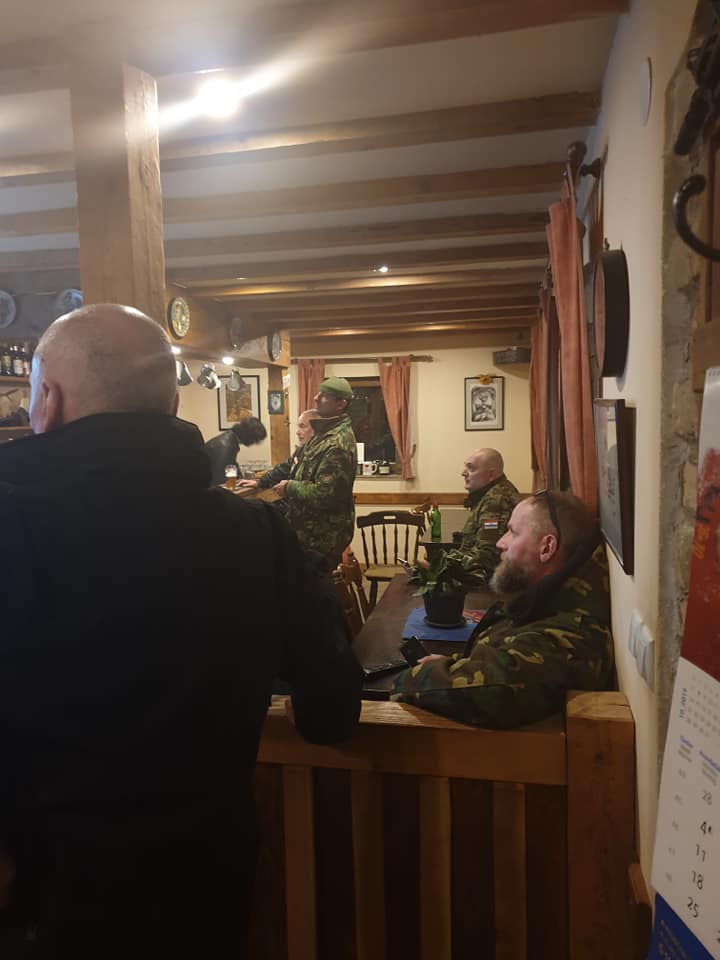
One decided with a friend to fight for Croatia while living in Taiwan. His only Croatian friend there was an exotic dancer, who gave them a gold watch a client had given her. She told him to pawn the watch to pay for their flights – her contribution to her motherland’s war effort.
For some, Vukovar is an annual event, a chance to remember fallen friends and to catch up with those who went through the same hell as they, but for others, last night was the first return to Croatia in over a decade. And for one British vet in particular, it was an incredibly emotional return.
He had decided to visit some of the towns and villages in Bosnia where he had fought. Walking around one, he was recognised by a local who had fought with him in his unit. An emotional reunion led to coffee, rakija, beer, and then a question.
“Have you ever been to Johan’s grave? Would you like to see it if not?”
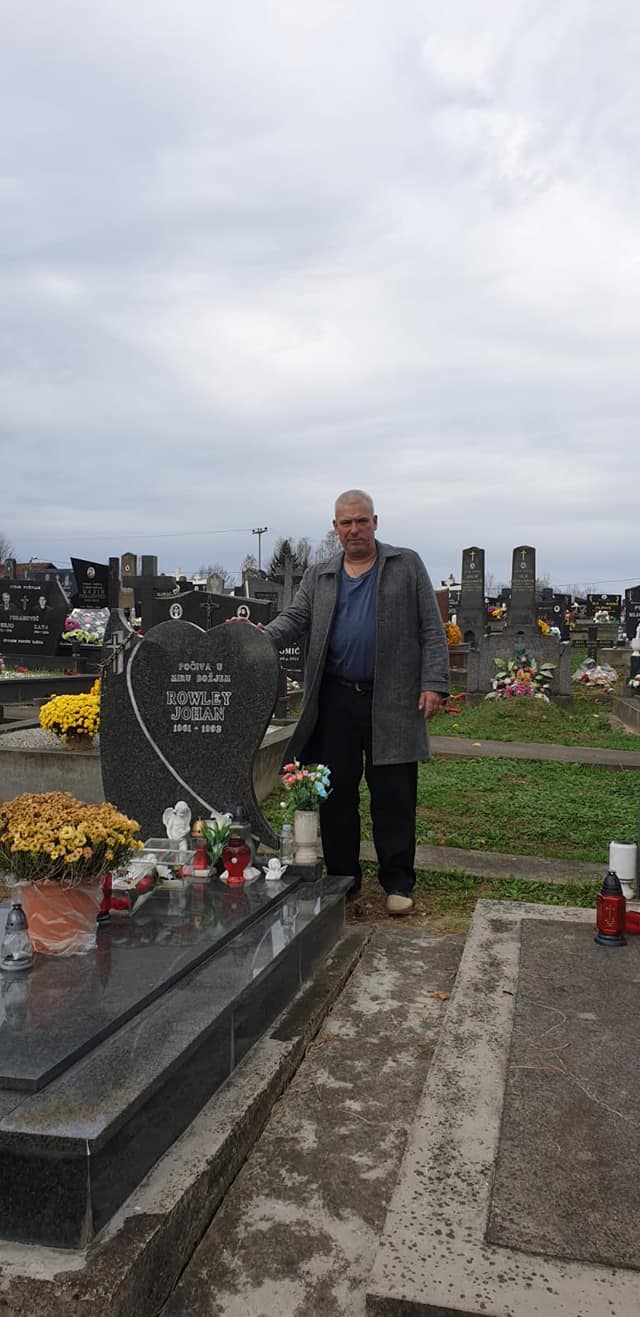
Memories came flooding back. Johan was another foreign vet who had been wounded at least twice. For twice was the number he had carried Johan on his back to safety. On the last occasion, Johan was really struggling, six bullets inside him, and he somehow kept going to carry Johan back to relative safety. As they were almost there, Johan took a seventh bullet, the blood spraying all over his rescuer. They made it to the field hospital, where Johan was patched up and sent down the line where he sadly died two hours later.
And now, some 26 years later, the chance to visit his grave. A hugely emotional moment, made all the more so when he saw how well Johan’s grave had been looked after. A marble top and fresh flowers. He touched the cold marble grave and got some kind of closure.
Some time before the Vukovar event, the Office of the President got in touch with these foreign veterans requesting a meeting during the official programme. A publicity stunt during an election campaign, perhaps, but it was a request which was well received, for the majority of those I spoke to last night feel very disappointed by the way they have been marginalised after the service they gave. In the event, the presidential meeting was a total failure. As the veterans waited for their moment, a presidential aid was insisting that the President had no time to meet them as she was on a tight schedule. In the end, she did apparently come for a few seconds, but nothing of consequence was said. Another disappointment.
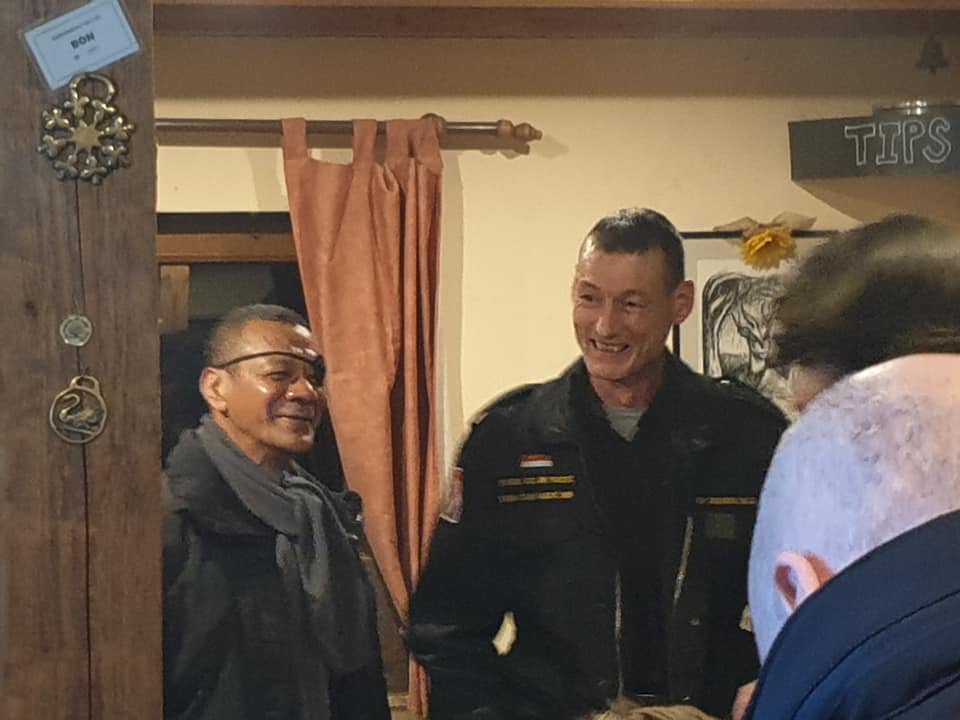
There is more, much more that I could write about last night. And I will, but another time.
My visit to Vukovar was emotionally draining, and I was not even involved. What it must be like for these heroes, living it and the consequences of it on a daily basis, I can only imagine.
I sincerely hope they receive the recognition and support that they deserve, and TCN’s door is always open for those who want to highlight such stories.
I went for a walk on my own. So much to take in. And when I returned, my favourite band in the world (see video above) were playing. The Smiths and This Charming Man in an English pub in a field in the middle of nowhere in eastern Croatia with a barbecue with foreign volunteers in Croatia’s Homeland War. As random as life can be.
It was an honour to be there.
Thank you for your considerable contributions.



